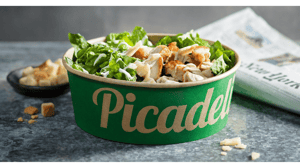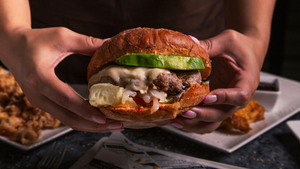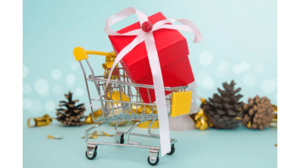The Sunflower Group Identifies 10 Ways to Strengthen Retail Business
January 1, 2018
The Sunflower Group has identified 10 ways to strengthen retail business through in-store sampling and demos, company officials say. Marketers are reminded execution is critical to achieving goals as in-store sampling and demo events are expected to climb, they add. The New Product Development Outlook Study, released by BNP, revealed that 51% of marketers surveyed said they plan to launch more new products into the marketplace than they did in 2014; 44% of marketers surveyed are planning increased POP/in-store demo activity and 56% are planning on increased retail promotions. “We manage and staff in-store demos for 9 of the top 12 grocery retailers. While we have many services that appeal to marketers, I feel the level of transparency that we offer provides assurance and accountability for retail execution,” says Jim Wells, senior vice president of sales, The Sunflower Group. Alberto Perez, key account manager for Serta said, “Sunflower created an online training course for our demonstrators, this process of certifying eligible demonstrators has provided a higher level of shopper engagement. We are extremely satisfied with the level of demonstrators that Sunflower sources for us. They not only represent our brand well and are comfortable with the knowledge, but also improve the customer service levels of the store we are in.” According to officials from The Sunflower Group, marketers can achieve 10 goals, as they described below, with sampling and demos: 1) Obtain same day sales lifts ranging from 200-2000% – Results of sampling have a wide range of success for different categories and how well they are executed. 2) Leverage reciprocity amongst retailers, suppliers and shoppers – Goodwill does not go unnoticed. This is not only true of the supplier-retailer partnership, but also true for the shopper-retailer relationship. 3) Strengthen brand loyalty for both the brand and store – Building affinity amongst brands, retailers and shoppers can result in long-term connections, repeat visits and sales. 4) Increase register rings through add-on sales – Sampling can often reach beyond the sale of the sampled product to related products resulting in higher basket totals. 5) Gain new buyers/consumers – Many shoppers avoid risk of the unknown. Retailers and suppliers can mitigate shopper risk with sampling and demos. 6) Regain lapsed and occasional users – Sampling events serve as reminders and provide necessary re-trial and awareness to win back shoppers. 7) Stretch sales to other varieties – Once initial brand trust and preference is established, consumer confidence extends to other SKUs from the same brand and manufacturer, resulting in additional sales. 8) Introduce new consumers to the category – The initial category trial, has a lasting, minimizing, blanket effect to the risks of other products in the same category. This results in total category gains. 9) Heighten in-store visibility/ real estate – Awareness and share-of-mind close to the point-of-purchase are active ingredients to any marketer’s success. 10) Maximize social and sensory engagement – The social aspects of sampling provide immediate feedback and a chance to directly engage with and know the shopper. Additionally, sampling can activate every human sense within an arms reach of purchase. Jim Wells adds, “In-store sampling has its benefits, but rarely gets the full credit it deserves. Retailers and manufacturers should leverage sampling and demos in multiple areas of the store for vital shopper engagement.”
About the Author
You May Also Like




